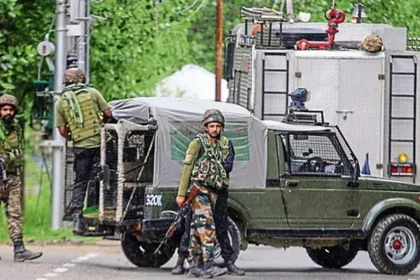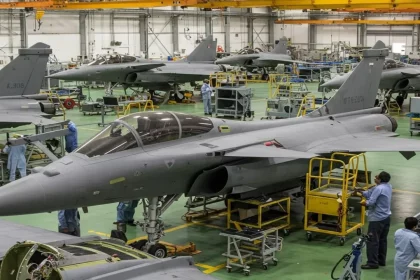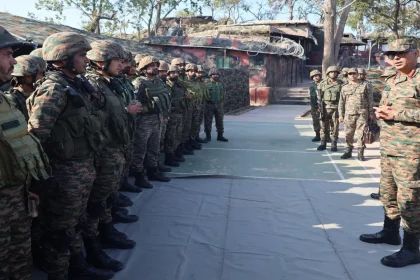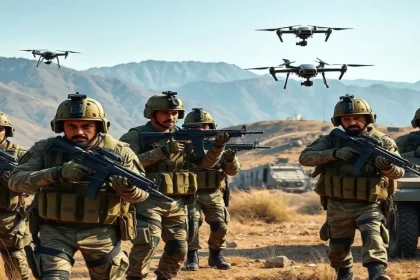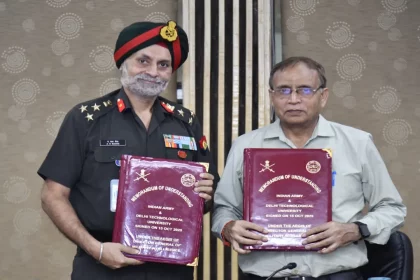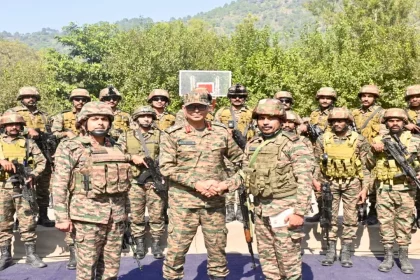Zynetra Defence Successfully Tests Indigenous ‘Punisher’ C-UAS Gun Mount in Jammu & Kashmir
Homegrown Multi-Purpose Weapon Enhances India’s Counter-Drone Capabilities.
Defence Ministry Tightens Indigenisation Norms in IAF’s 114-Fighter MRFA Programme
Stronger Localisation, Technology Transfer, and Long-Term Sustainment Now Key Priorities.
Lt Gen Prasanna Kishore Mishra Reviews Operational Readiness Along LoC
Senior Commanders Assess Security Situation in Krishna Ghati and Naushera Sectors.
Indian Infantry to Field ‘Ashni’ Drone Platoons Across 385 Battalions; ‘Bhairav’ Light-Strike Battalions Rapidly Rolled Out
Move boosts battlefield awareness and strike lethality as Army accelerates infantry modernisation ahead of Shaurya Diwas.
Indian Army and Delhi Technological University Ink Landmark MoU to Boost Defence Innovation and Atmanirbhar Bharat
Collaboration to Focus on AI, Cyber Security, Robotics, and Soldier Upskilling for a Future-Ready Force.
Lt Gen Prasanna Kishore Mishra Reviews Security Situation in Rajouri, Commends Troops for Operational Excellence
Corps Commander praises troops for their professionalism and vigilance during a frontline review of counter-insurgency and anti-infiltration operations in the…

